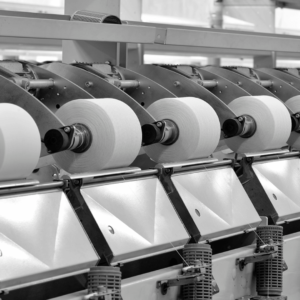Composting Cotton-Derived Waste
A Sustainable Solution for Textile Residues
The Problem of Textile Waste
It’s no secret that the textile industry ranks as the second most polluting industry globally. Every year, millions of tons of textile waste, including cotton derivatives, are generated. Sadly, most of this waste ends up in landfills, where it decomposes slowly, releasing greenhouse gases and toxic chemicals into the environment.
Understanding Composting Enter composting, a natural process aimed at breaking down organic matter like food and garden waste to create high-quality organic fertilizers. Remarkably, research has shown that even textile waste derived from cotton can effectively be composted.
Advantages of Composting Cotton Textile Waste:
- Waste Reduction: One of the most significant benefits is the reduction of environmental pollution caused by waste.
- Soil Enrichment: Composted cotton waste transforms into valuable organic fertilizer, enriching soil quality.
- Circular Economy Promotion: The circular economy gains traction as the life cycle of these materials comes full circle. Textile products are transformed into compost, which then fosters the growth of new plants, creating a sustainable and circular system.
- CO2 Footprint Reduction: By averting the decomposition of cotton textile waste, associated greenhouse gas emissions are significantly curbed.
- Fueling Textile Industry Sustainability: Addressing the waste issue and promoting responsibility contribute to an overall sustainable textile industry.
In a nutshell, composting textile waste offers a range of benefits, from environmental to social and economic. These include reducing waste, enhancing soil quality, championing circularity, and notably cutting down the CO2 footprint.
Explore More Articles Here:
Natural Cotton Color
In the ever-evolving world of sustainable fashion, a remarkable transformation...
Read MoreFibers from renewable raw wood
In the ever-evolving world of fashion and sustainability, the textile...
Read More


